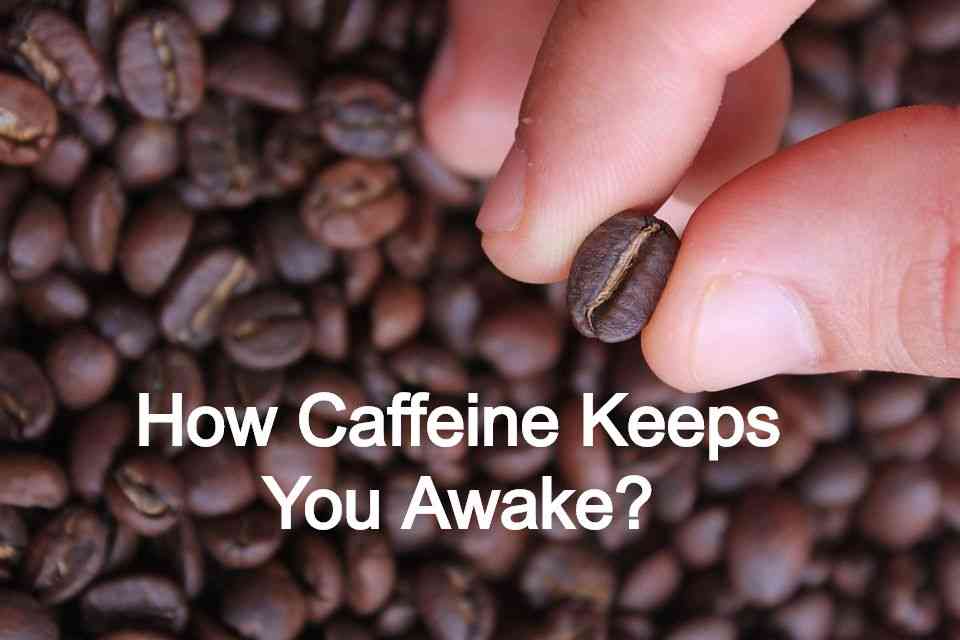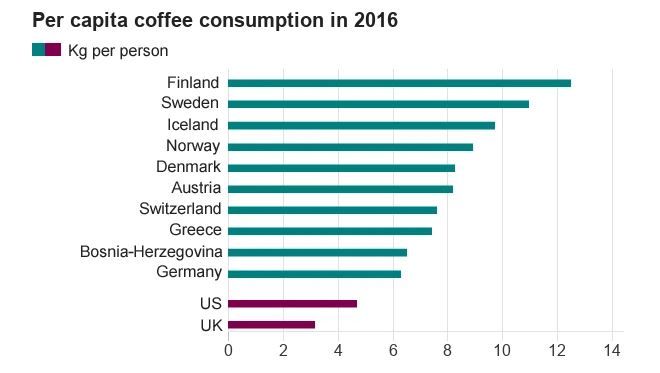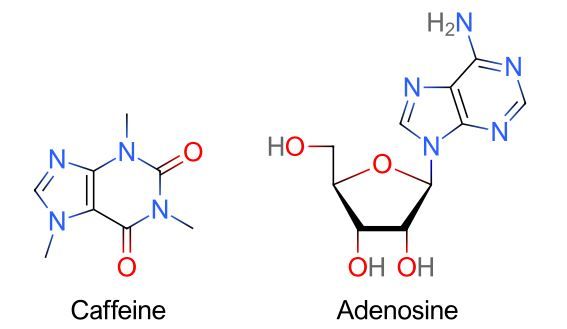How Caffeine Keeps You Awake?
Over 150 million bags of coffee are consumed by people a year worldwide. And it’s almost 10 million tons of coffee.

Over 150 million bags of coffee are consumed by people a year worldwide. And it’s almost 10 million tons of coffee. Approximately 150 million Americans drink 400 million cups of coffee a day. It is equivalent to 140 billion cups a year. According to World Atlas’s data [1]. per capita coffee consumption in 2016 is given below in the figure :

The main and active ingredient in coffee is “Caffeine”. The Food and Drug Administration (FDA) recommends a maximum of 400 mg caffeine a day. [2] Our today’s topic is all about how this ingredient (Caffeine) works in your body and what happens to your body when you consume it. So, let’s dive right into it.
Caffeine actually acts as a stimulant in the central nervous system. Basically, the neurons in your brain produce a compound called “Adenosine” as a byproduct while you are awake. And it is constantly monitored by the nervous system through receptors. In most of the cases, when the level of Adenosine drops a certain low level in the brain, the body starts relaxing to prepare for sleep. Although, there are several different adenosine receptors in the body but caffeine mostly affects the A1 receptor. So, you can guess the key player here is “Adenosine”. It is one of the best known sleep-regulating molecules.

Normally, adenosine docks the receptors and activates a cascade of biochemical reactions. It causes neurons to move slowly and decreases the release of important brain-signaling molecules. As a result. you feel sleepy. So, when you consume caffeine, it reaches your brain through the blood circulation. It works then as an adenosine receptor antagonist. Caffeine blocks the adenosine receptors. The interesting thing is, they both (Adenosine & Caffeine) have a similar molecular structure. Hence, it can chock into the adenosine receptors but not so close enough to activate them. Literally, it inhibits the adenosine to bind with receptors. That’s why those biochemical reactions don’t happen and neurons still fire away. You feel more “AWAKE”.
Remember, there are some potential benefits and risks of it. Still some contradictions are going on about it’s benefits and side-effects. We’ll know more about it later.
To know about "Melatonin: The Science Of Sleep", Read our article HERE...
References :
[1] WorldAtlas, The Top Coffee Consuming Countries, Retrieved From : https://www.worldatlas.com/articles/top-10-coffee-consuming-nations.html (January 5, 2018)
[2] Mayo Clinic, Caffeine , Retrieved From : https://www.mayoclinic.org/healthy-lifestyle/nutrition-and-healthy-eating/in-depth/caffeine/art-20045678
Subscribe to our newsletter to get all the updates delivered right into your inbox. THANKS :)

